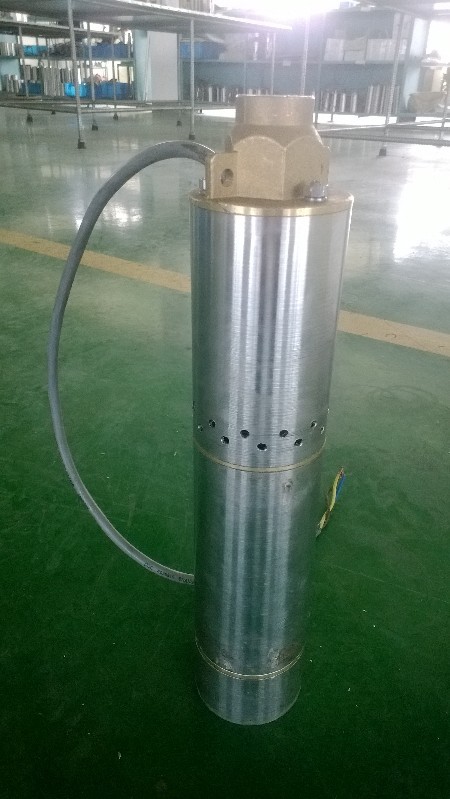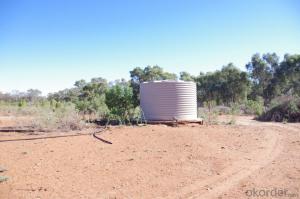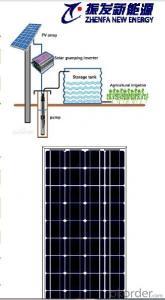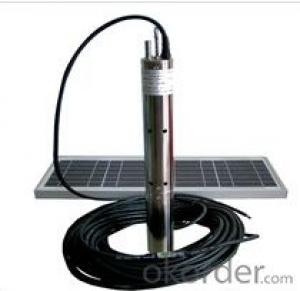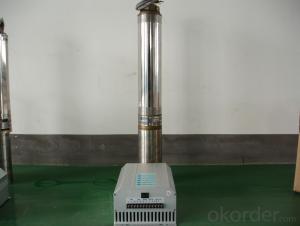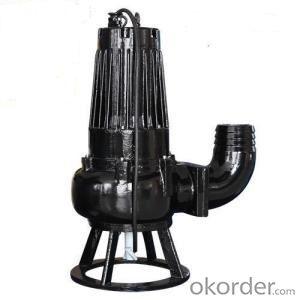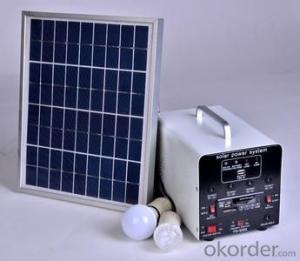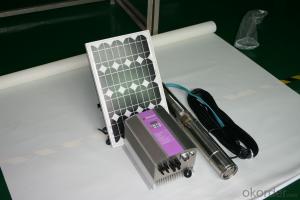Portable Solar Water Screw Pump
- Loading Port:
- Shanghai
- Payment Terms:
- TT OR LC
- Min Order Qty:
- -
- Supply Capability:
- 300 set/month
OKorder Service Pledge
Quality Product, Order Online Tracking, Timely Delivery
OKorder Financial Service
Credit Rating, Credit Services, Credit Purchasing
You Might Also Like
how is the rotor made:
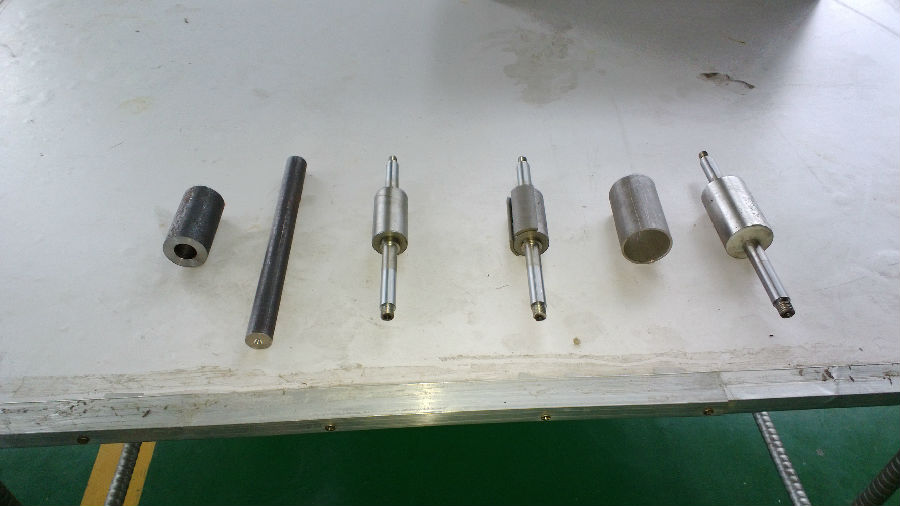
how is the motor made:
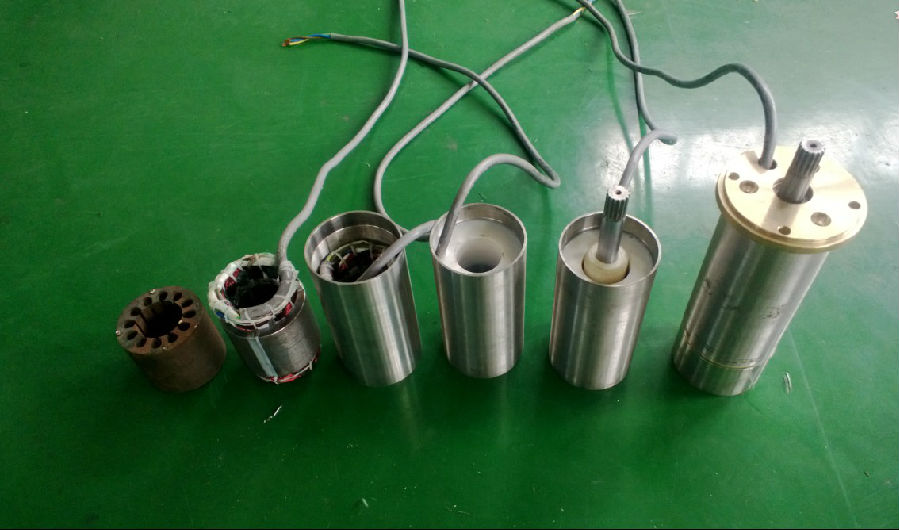
the pump :
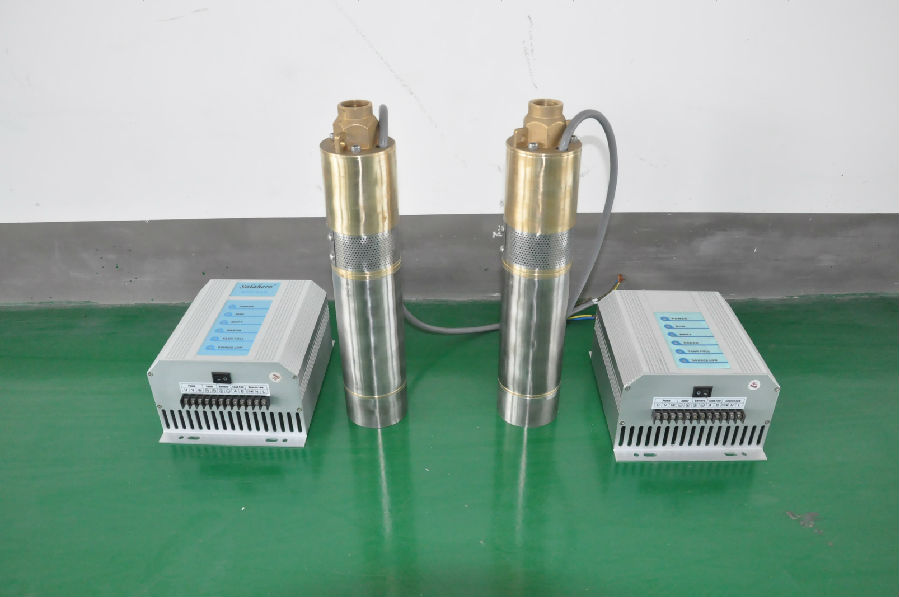
controller terminal connection:
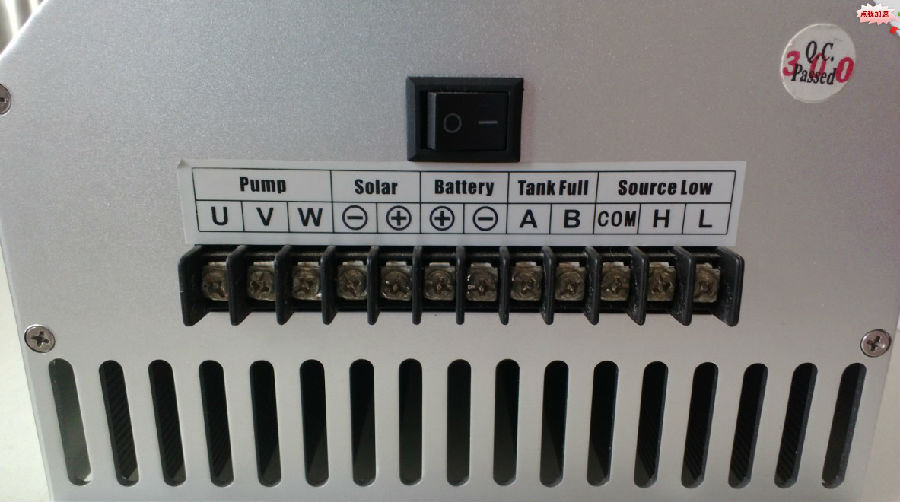
The permanent magnet:
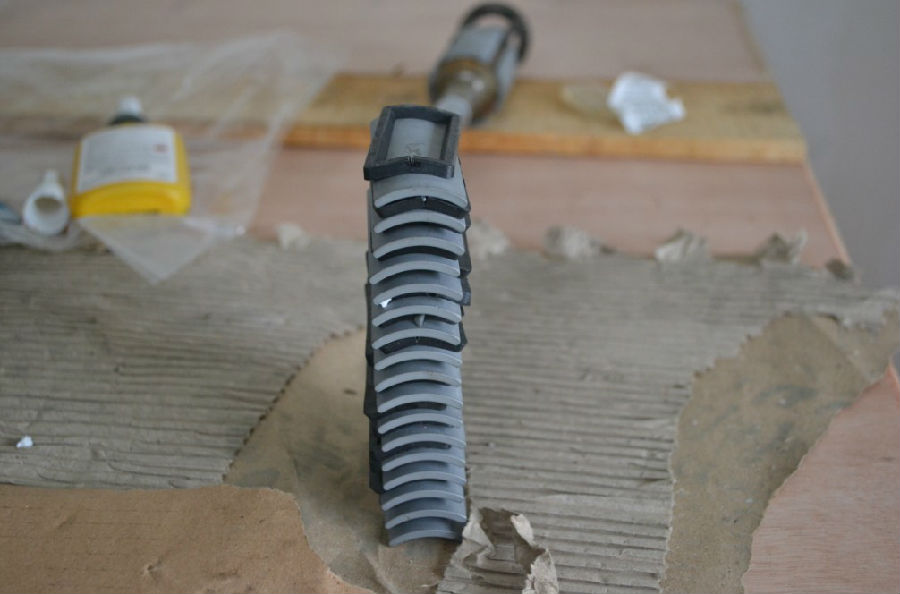
the helical screw:
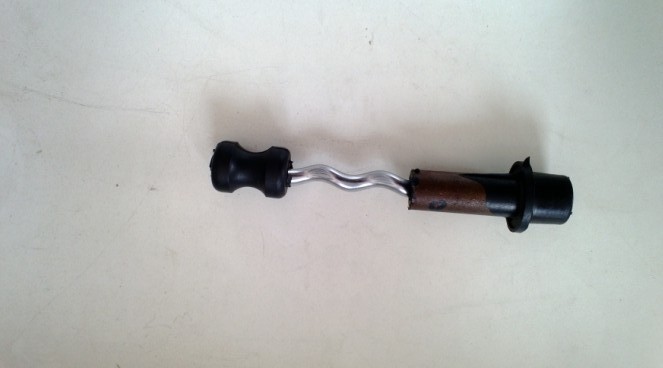
controller box:
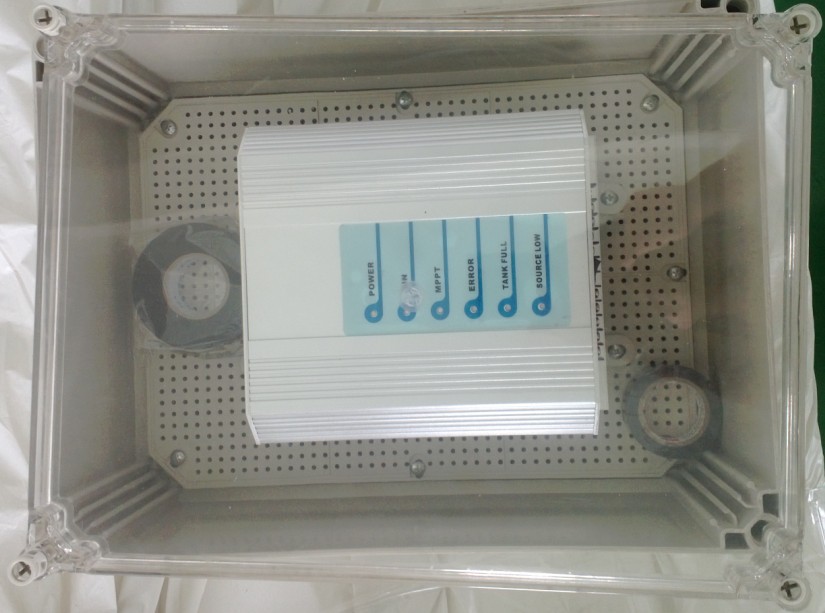
the senors:
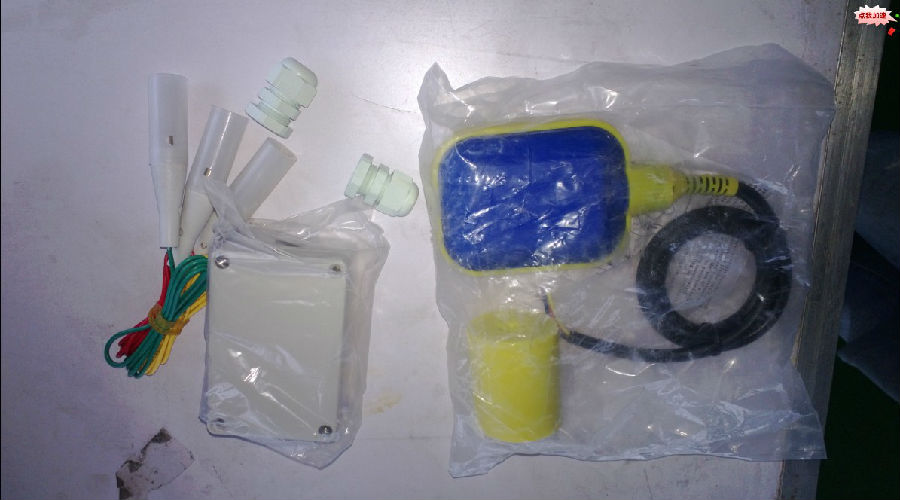
the test:
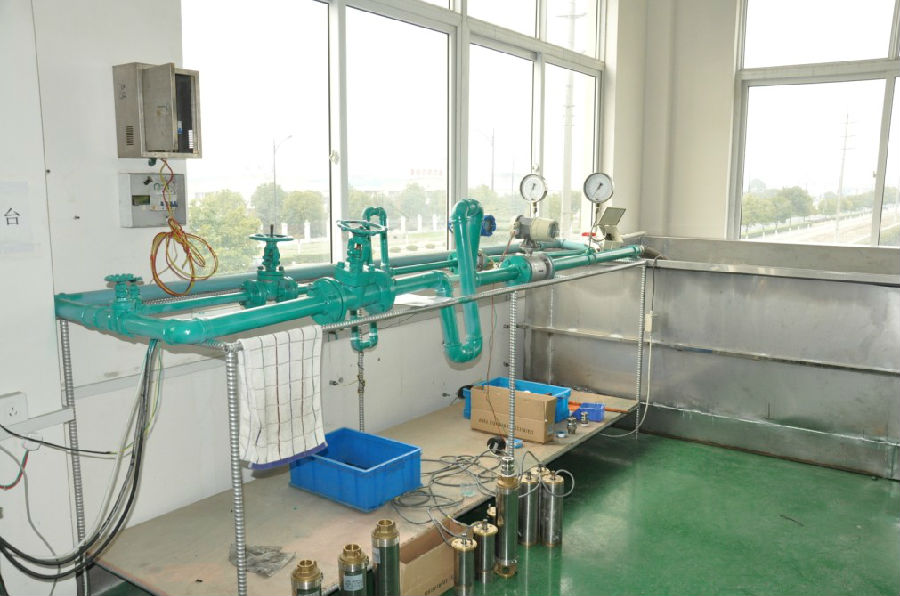
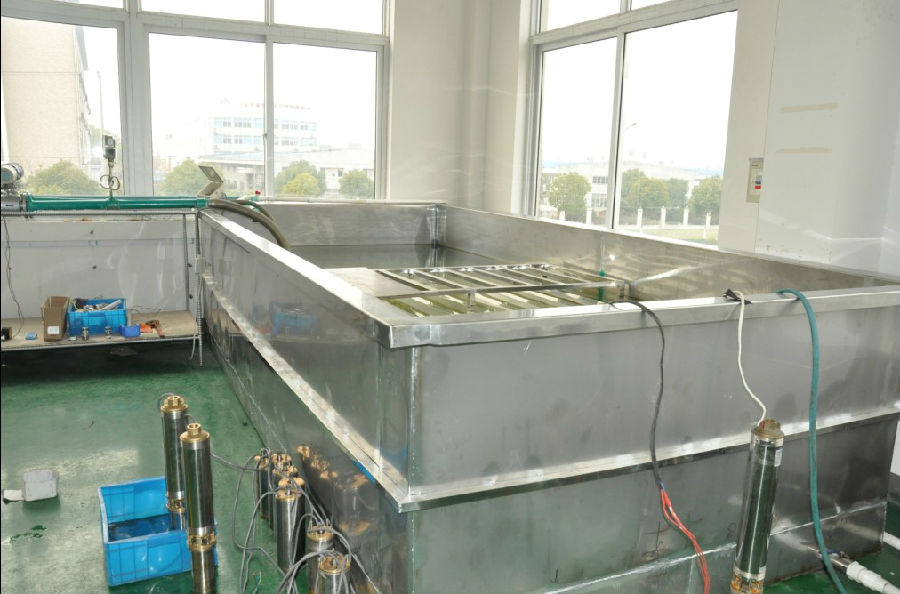
the application:
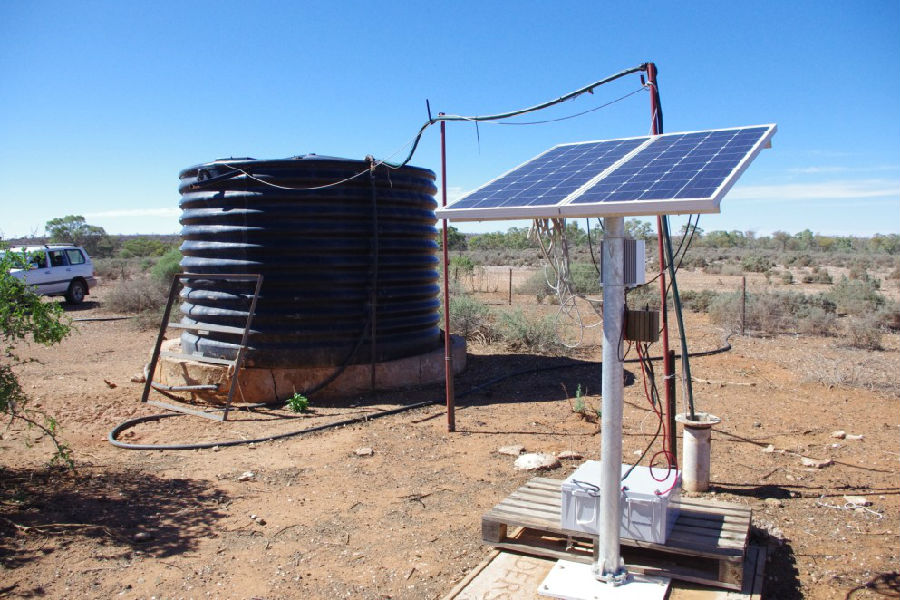
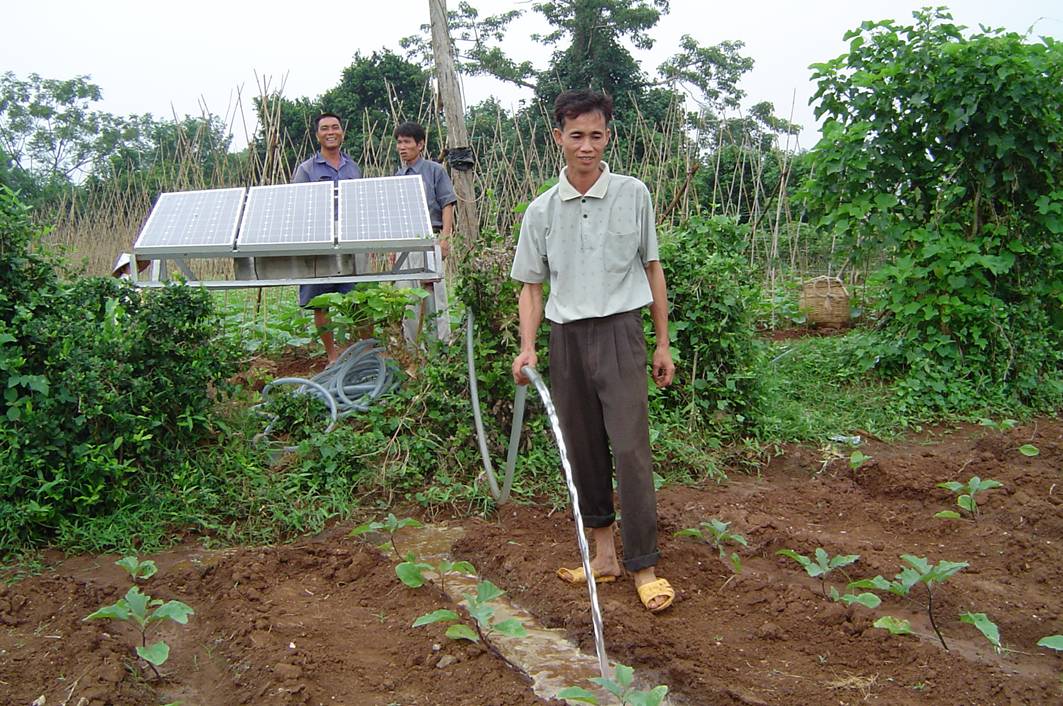
the package:
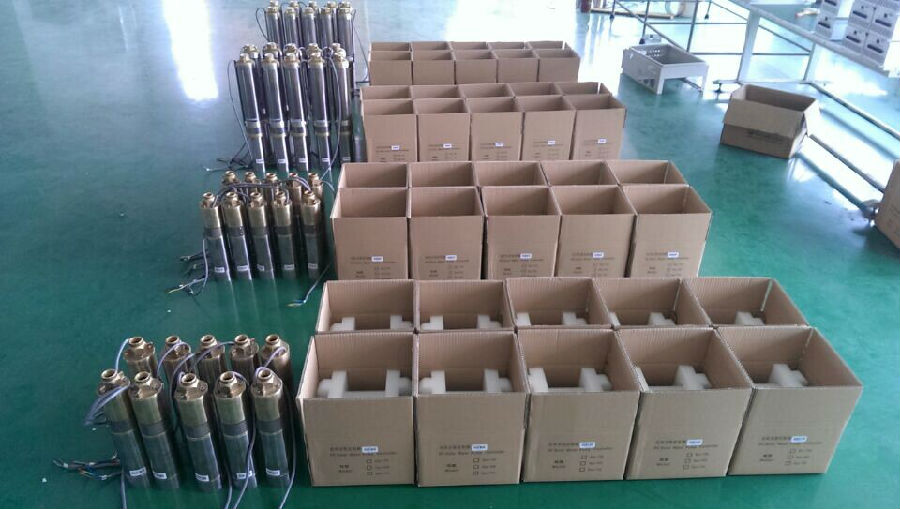
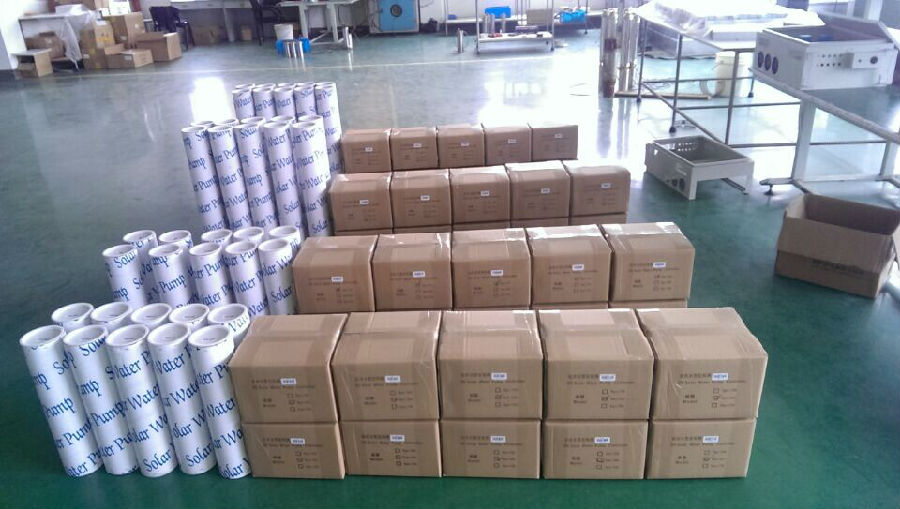
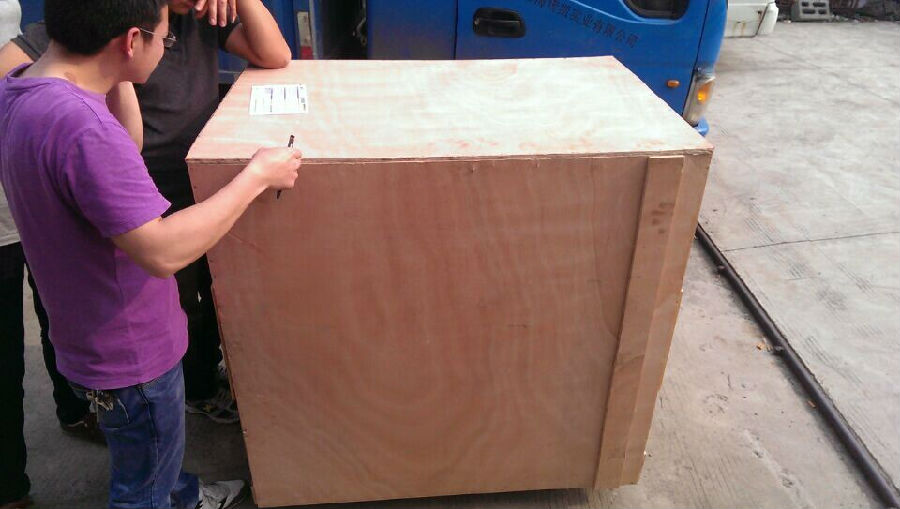
- Q: Can a solar pump be used in residential buildings?
- Yes, a solar pump can be used in residential buildings. Solar pumps are a sustainable and cost-effective option for drawing water from wells or other sources, making them suitable for residential use. They can provide water for a variety of applications such as irrigation, domestic use, and pool circulation, helping to reduce electricity costs and environmental impact.
- Q: Can a solar pump be used for firefighting purposes?
- Yes, a solar pump can be used for firefighting purposes. Solar pumps are efficient and environmentally friendly, making them suitable for remote areas where electricity may not be readily available. They can be used to draw water from various sources, such as lakes, rivers, or wells, and can provide a reliable water supply for firefighting operations. Additionally, solar pumps can be easily transported and installed, making them a practical choice for firefighting applications.
- Q: How much space is required for installing a solar pump system?
- The amount of space required for installing a solar pump system can vary depending on the size and capacity of the system. Generally, a solar pump system requires a minimum of a few square meters of space for the installation of solar panels, as well as additional space for the pump and storage tanks. It is important to consult with a professional to determine the specific space requirements based on the individual system's specifications.
- Q: Are there any limitations to the type of water a solar pump can handle?
- Yes, there are some limitations to the type of water a solar pump can handle. Solar pumps are designed to handle clean and clear water sources such as rivers, lakes, or wells. They may encounter difficulties with water that contains high levels of sediment, debris, or contaminants. Additionally, the performance of a solar pump may be affected by water with high acidity or alkalinity levels, extreme temperatures, or excessive salinity. It is important to consider these factors when selecting a solar pump for a specific water source.
- Q: How does a solar pump handle water with high levels of acidity or alkalinity?
- A solar pump is typically not designed to handle water with high levels of acidity or alkalinity. Water with extreme pH levels can damage the components of the pump, such as the motor, wiring, or pump housing. To handle water with high acidity or alkalinity, it is recommended to use additional equipment like filters, pH neutralizers, or pre-treatment systems to adjust the water's pH level before it reaches the solar pump. These precautions help protect the pump and ensure its optimal functionality.
- Q: Can a solar pump be used for water supply in agricultural or farming operations?
- Yes, a solar pump can be used for water supply in agricultural or farming operations. Solar pumps are an effective and sustainable solution for providing water to crops, livestock, and irrigation systems. By harnessing solar energy, these pumps eliminate the need for electricity or fuel, reducing operational costs and environmental impact. They can be used in remote areas with limited access to power grids and are particularly beneficial in regions with abundant sunlight. Solar pumps are reliable, efficient, and can help promote sustainable agriculture practices.
- Q: How does a solar pump handle water with high levels of algae or cyanobacteria blooms?
- A solar pump can handle water with high levels of algae or cyanobacteria blooms by employing various filtration mechanisms. Firstly, a pre-filter is often used to remove larger particles and debris from the water before it enters the pump. Additionally, some solar pumps incorporate UV sterilization systems that expose the water to ultraviolet light, effectively killing algae and bacteria. This helps prevent clogging and ensures that the water delivered by the pump is free from harmful contaminants.
- Q: How does a solar pump handle fluctuations in water quality?
- A solar pump can handle fluctuations in water quality by utilizing various filtration and purification systems. These systems are designed to remove impurities, sediments, and contaminants present in the water, ensuring a consistent water supply and protecting the pump from potential damage. Additionally, the pump's design includes features like self-cleaning mechanisms or built-in sensors that can detect changes in water quality and adjust its operation accordingly.
- Q: How does the size of the solar pump controller affect its performance?
- The performance of a solar pump controller can be significantly influenced by its size. The size denotes the controller's capacity or power output, typically measured in watts. A solar pump controller of larger size, boasting a higher power output, can effectively handle larger loads and thus support more robust pumps. This enables it to manage higher flow rates and lift heights, resulting in the pumping of water with greater efficiency. Furthermore, it can accommodate larger solar panels, capable of producing more electricity and recharging batteries at a faster pace. Conversely, a smaller solar pump controller with a lower power output might struggle to cope with high flow rates or lift heights. It may have difficulty powering larger pumps, leading to decreased performance and efficiency. Additionally, a smaller controller may have limited compatibility with solar panels, resulting in slower battery charging and diminished overall performance. Therefore, it is crucial to select the appropriate size for a solar pump controller in order to ensure optimal performance. Factors such as the required flow rate, lift height, and power requirements of the pump must be taken into consideration. By choosing a controller of suitable size, one can maximize the effectiveness and efficiency of the solar pumping system.
- Q: Are there any safety concerns with installing and operating a solar pump?
- Yes, there are some safety concerns to consider when installing and operating a solar pump. Firstly, during the installation process, there is a risk of electric shock if proper precautions are not taken. It is important to ensure that the electrical connections are made correctly and securely, and that the system is properly grounded to prevent any electrical hazards. Additionally, working at heights may be required during the installation, which can pose a risk of falls or accidents if not done safely. Secondly, there can be safety concerns related to the maintenance and operation of a solar pump. Regular inspection and maintenance are necessary to keep the system running smoothly. This may involve working with electrical components or being exposed to moving parts, which can be potentially dangerous if proper safety measures are not followed. Furthermore, depending on the location and design of the solar pump system, there may be risks associated with water supply. For instance, if the water source is contaminated or if the pump is not properly sealed, it can lead to waterborne diseases or other health hazards. To mitigate these safety concerns, it is advisable to hire a professional and experienced installer who can ensure that the system is installed correctly and safely. Regular maintenance and inspection should be conducted to identify and address any potential issues. It is also important to follow the manufacturer's guidelines and recommendations for safe operation and to use appropriate personal protective equipment when working with or around the solar pump system.
Send your message to us
Portable Solar Water Screw Pump
- Loading Port:
- Shanghai
- Payment Terms:
- TT OR LC
- Min Order Qty:
- -
- Supply Capability:
- 300 set/month
OKorder Service Pledge
Quality Product, Order Online Tracking, Timely Delivery
OKorder Financial Service
Credit Rating, Credit Services, Credit Purchasing
Similar products
Hot products
Hot Searches
Related keywords

